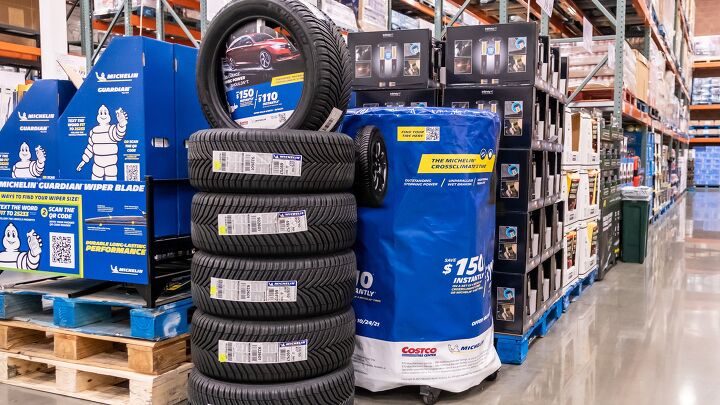J.D. Power: EV Owners Not As Satisfied as Gas Owners On Tire Wear

While it’s true that electric vehicles don’t require the same level of routine maintenance that gas vehicles do, EVs have some downsides. A main point of complaint for owners has been tires, as a new J.D. Power study showed that many are surprised that their heavy, torque-rich EV burns through rubber faster than when they had a gas vehicle.
The study showed that EV owners are less satisfied with their tires’ durability, as they expect them to last as long as their gas vehicle’s tires did. J.D. Power’s senior director of benchmarking and alternative mobility, Ashley Edgar, said, “Because of the inherent conflict of maximizing vehicle range and optimizing tire wear for EVs, tire manufacturers and automakers need to work together to overcome the challenge without completely sacrificing tire performance in other areas, especially as the EV market continues to increase.”
The shift in tire performance will mean that dealer service departments need to be prepared to jump into the tire business, if they’re not already. Electric vehicles don’t need oil changes and other regular maintenance, so tire rotations and related fixes will become the most common customer needs.
Outside of EV tires, J.D. Power also found that customers were most satisfied with Michelin tires across several segments, including luxury vehicles, passenger cars, and performance tires. Falken was the top tire in the truck and utility segment.
J.D. Power surveyed 31,414 owners of 2022 and 2023 model-year vehicles for the study. Owners were asked about their satisfaction in four areas: tire ride, tire wear, tire traction and handling, and tire appearance.
[Image: Kalimedia via Shutterstock]
Become a TTAC insider. Get the latest news, features, TTAC takes, and everything else that gets to the truth about cars first by subscribing to our newsletter.

Chris grew up in, under, and around cars, but took the long way around to becoming an automotive writer. After a career in technology consulting and a trip through business school, Chris began writing about the automotive industry as a way to reconnect with his passion and get behind the wheel of a new car every week. He focuses on taking complex industry stories and making them digestible by any reader. Just don’t expect him to stay away from high-mileage Porsches.
More by Chris Teague
Latest Car Reviews
Read moreLatest Product Reviews
Read moreRecent Comments
- Varezhka I have still yet to see a Malibu on the road that didn't have a rental sticker. So yeah, GM probably lost money on every one they sold but kept it to boost their CAFE numbers.I'm personally happy that I no longer have to dread being "upgraded" to a Maxima or a Malibu anymore. And thankfully Altima is also on its way out.
- Tassos Under incompetent, affirmative action hire Mary Barra, GM has been shooting itself in the foot on a daily basis.Whether the Malibu cancellation has been one of these shootings is NOT obvious at all.GM should be run as a PROFITABLE BUSINESS and NOT as an outfit that satisfies everybody and his mother in law's pet preferences.IF the Malibu was UNPROFITABLE, it SHOULD be canceled.More generally, if its SEGMENT is Unprofitable, and HALF the makers cancel their midsize sedans, not only will it lead to the SURVIVAL OF THE FITTEST ones, but the survivors will obviously be more profitable if the LOSERS were kept being produced and the SMALL PIE of midsize sedans would yield slim pickings for every participant.SO NO, I APPROVE of the demise of the unprofitable Malibu, and hope Nissan does the same to the Altima, Hyundai with the SOnata, Mazda with the Mazda 6, and as many others as it takes to make the REMAINING players, like the Excellent, sporty Accord and the Bulletproof Reliable, cheap to maintain CAMRY, more profitable and affordable.
- GregLocock Car companies can only really sell cars that people who are new car buyers will pay a profitable price for. As it turns out fewer and fewer new car buyers want sedans. Large sedans can be nice to drive, certainly, but the number of new car buyers (the only ones that matter in this discussion) are prepared to sacrifice steering and handling for more obvious things like passenger and cargo space, or even some attempt at off roading. We know US new car buyers don't really care about handling because they fell for FWD in large cars.
- Slavuta Why is everybody sweating? Like sedans? - go buy one. Better - 2. Let CRV/RAV rust on the dealer lot. I have 3 sedans on the driveway. My neighbor - 2. Neighbors on each of our other side - 8 SUVs.
- Theflyersfan With sedans, especially, I wonder how many of those sales are to rental fleets. With the exception of the Civic and Accord, there are still rows of sedans mixed in with the RAV4s at every airport rental lot. I doubt the breakdown in sales is publicly published, so who knows... GM isn't out of the sedan business - Cadillac exists and I can't believe I'm typing this but they are actually decent - and I think they are making a huge mistake, especially if there's an extended oil price hike (cough...Iran...cough) and people want smaller and hybrids. But if one is only tied to the quarterly shareholder reports and not trends and the big picture, bad decisions like this get made.


































Comments
Join the conversation
2019 Chevy Impala Premier FWD with 20 inch factory Bridgestones. I'm looking at replacing tires at the 65,000 KLM's (40,000 miles ) mark ....It doesn't thrill me .. I'm pricing Michelin Cross Climate 2 tires ouch !! ..Up here in Canuckastan ....Big $$$$$
Since EVs don't come in for oil changes, their owners don't have their tires rotated regularly, something the dealers would have done. That's the biggest reason they need to buy a new set of tires sooner, not that EVs wear out tires appreciably faster.